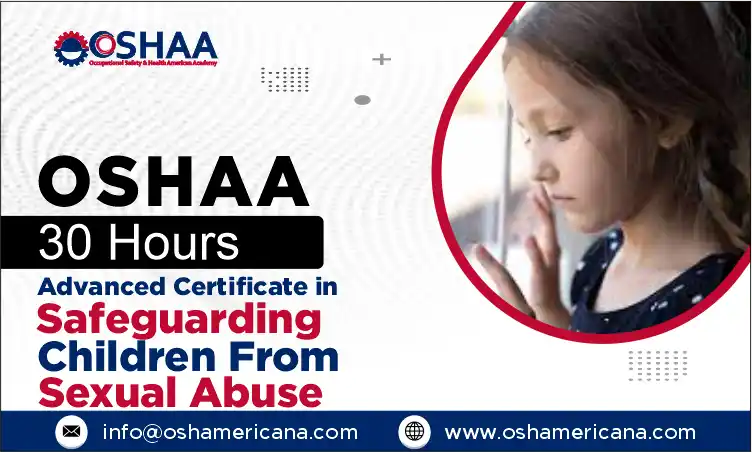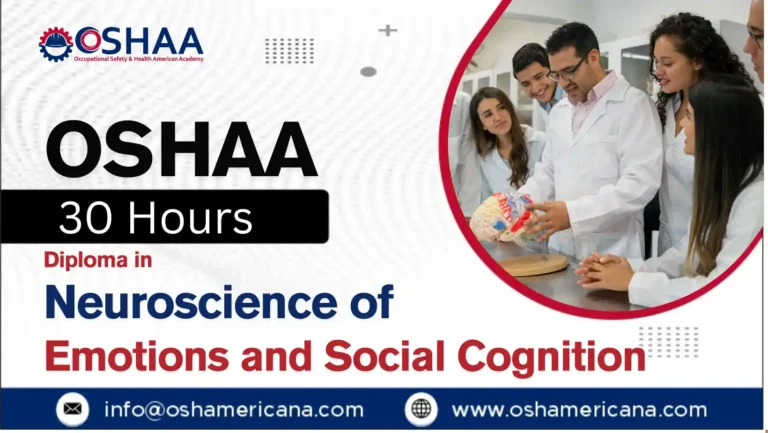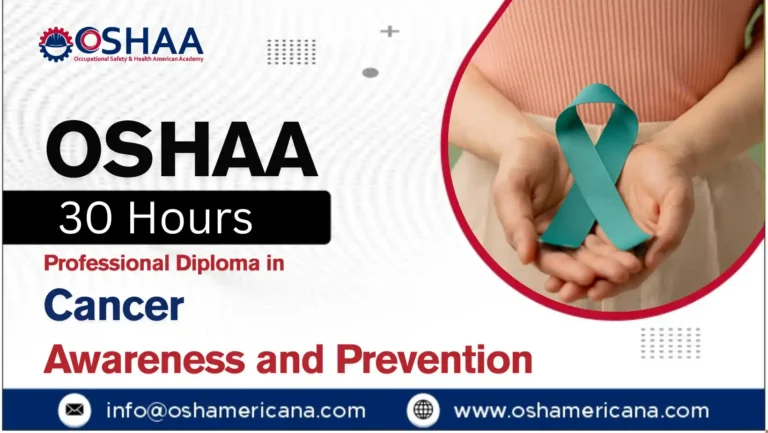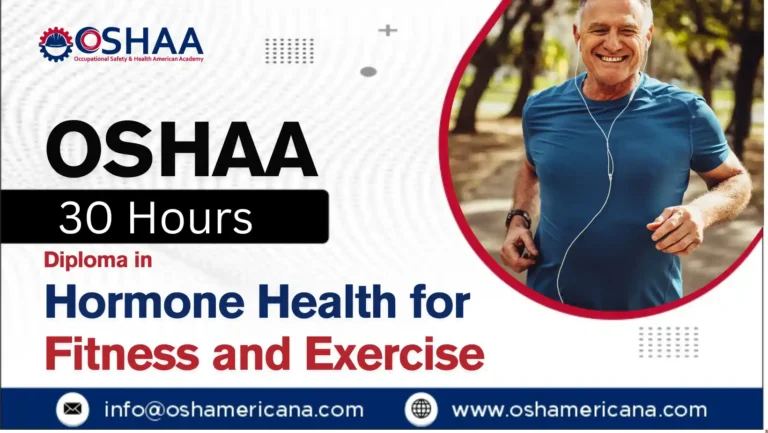Protecting children from harm is a fundamental responsibility for individuals working in childcare, education, healthcare, and social services. The OSHAA 30-Hour Advanced Certificate in Safeguarding Children from Sexual Abuse provides essential knowledge and practical skills to identify, prevent, and respond to cases of child sexual abuse. This comprehensive training program ensures that professionals can create a safe environment for children while meeting legal and ethical safeguarding responsibilities.
Safeguarding children involves protecting them from abuse, neglect, and exploitation while promoting their welfare. Child sexual abuse is a particularly sensitive and serious issue that requires trained professionals to recognise warning signs, intervene effectively, and support victims.
The OSHAA 30-Hour Advanced Certificate is designed to equip professionals with a deep understanding of safeguarding policies, reporting procedures, and intervention strategies, ensuring they can take appropriate action to protect vulnerable children.
The OSHAA 30-Hour Advanced Certificate in Safeguarding Children from Sexual Abuse is an essential qualification for professionals dedicated to child welfare and protection. By completing this course, participants gain the knowledge and confidence to identify risks, intervene appropriately, and create a safer environment for children.
OSHAA 30-Hours Advanced Certificate in Safeguarding Children From Sexual Abuse
Study Units
Learning Outcomes
Introduction to Safeguarding and Child Protection (2 Hours)
- Understand the fundamental principles of safeguarding and child protection
- Recognise the importance of safeguarding in preventing harm to children
- Identify key policies and procedures in child protection
Understanding Child Sexual Abuse – Types and Impact (3 Hours)
- Define child sexual abuse and differentiate between various forms of abuse
- Understand the short-term and long-term psychological, emotional, and physical impacts of abuse
- Recognise the societal and cultural factors influencing child sexual abuse
Recognising the Signs and Indicators of Abuse (4 Hours)
- Identify physical, behavioural, and emotional signs of child sexual abuse
- Understand different ways children may disclose abuse
- Develop skills to assess potential risk factors in various environments
Legal Frameworks and Reporting Obligations (5 Hours)
- Gain knowledge of national and international child protection laws and safeguarding policies
- Understand mandatory reporting requirements and professional responsibilities
- Learn the legal consequences of failing to report child abuse cases
Roles and Responsibilities of Professionals in Child Safeguarding (6 Hours)
- Define the responsibilities of professionals in different sectors, including education, healthcare, and social services
- Understand ethical considerations in safeguarding children
- Develop strategies to create and maintain child-safe environments
Risk Factors and Vulnerability Assessments (3 Hours)
- Identify factors that increase a child’s vulnerability to abuse
- Understand the role of family, social, and environmental influences in child protection
- Develop risk assessment techniques to evaluate potential safeguarding concerns
Responding to Disclosures and Allegations (4 Hours)
- Learn how to respond appropriately to a child’s disclosure of abuse
- Understand best practices for handling allegations and supporting affected children
- Develop communication skills to ensure a sensitive and professional approach
Multi-Agency Collaboration in Safeguarding (3 Hours)
- Understand the importance of cooperation between law enforcement, social services, healthcare, and education professionals
- Learn best practices for information sharing and joint decision-making in safeguarding cases
- Recognise the challenges and benefits of a multi-agency approach to child protection
- Comprehensive Knowledge of Child Protection – Gain in-depth understanding of safeguarding principles, legal frameworks, and best practices.
- Improved Ability to Recognise Abuse – Develop skills to identify signs of child sexual abuse and take appropriate action.
- Legal and Ethical Compliance – Ensure adherence to national and international child protection laws and reporting obligations.
- Enhanced Professional Skills – Improve expertise in risk assessment, handling disclosures, and supporting affected children.
- Increased Confidence in Responding to Cases – Learn how to respond sensitively and professionally to disclosures and allegations.
- Stronger Multi-Agency Collaboration – Understand the importance of working with law enforcement, healthcare, and social services to safeguard children.
- Career Advancement Opportunities – Enhance your qualifications for roles in social work, education, healthcare, and child protection.
- Improved Safeguarding Policies – Learn to implement and strengthen safeguarding policies within organisations.
- Greater Impact in Child Welfare – Contribute to creating safer environments for children and preventing harm.
- Recognition and Professional Credibility – Obtain a respected certification that validates your commitment to safeguarding children.
The OSHAA 30-Hour Advanced Certificate in Safeguarding Children from Sexual Abuse is designed for individuals and professionals committed to protecting children and ensuring their safety. This course is ideal for:
- Child Protection Officers and Safeguarding Leads – Professionals responsible for implementing child safeguarding policies and responding to abuse cases.
- Teachers, School Staff, and Education Professionals – Individuals working with children in educational settings who need to recognise and respond to safeguarding concerns.
- Social Workers and Family Support Workers – Professionals involved in child welfare, risk assessment, and intervention strategies.
- Healthcare Professionals – Doctors, nurses, and paediatricians who work with vulnerable children and need to identify signs of abuse.
- Law Enforcement Officers and Legal Professionals – Those involved in child protection investigations, prosecutions, and legal advocacy.
- Charity and NGO Workers – Individuals working in organisations that support vulnerable children and survivors of abuse.
- Foster Carers and Residential Care Workers – People responsible for the care of children in fostering or residential settings.
- Psychologists and Counsellors – Mental health professionals who provide support to children affected by abuse.
- Anyone Working with Children – Volunteers, childcare workers, and youth organisation staff who need safeguarding knowledge to protect children from harm.
This course is suitable for both experienced professionals and those new to child safeguarding who wish to build their expertise in recognizing, preventing, and responding to child sexual abuse.







